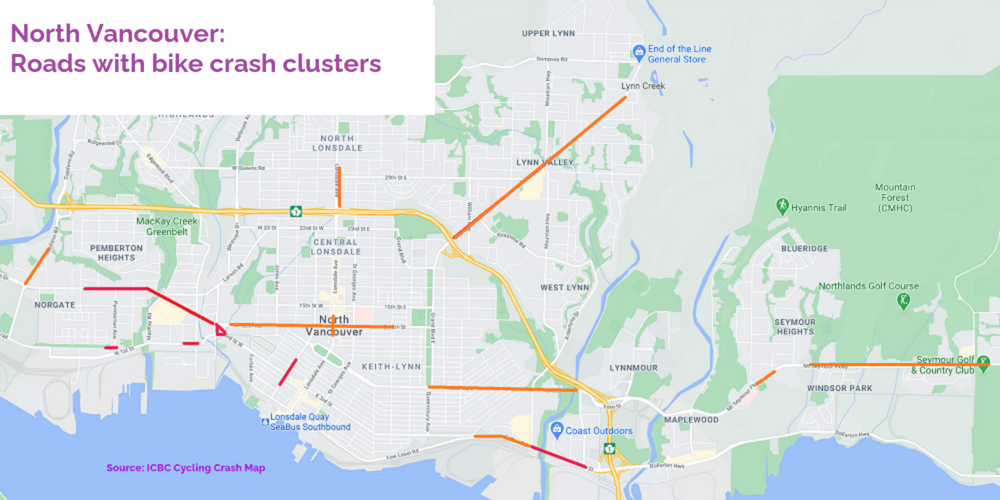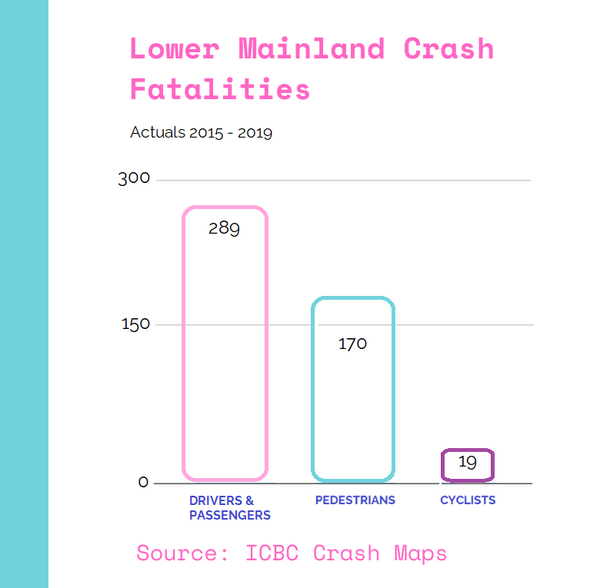Difference between revisions of "Crashmap"
imported>Heather Drugge |
imported>Heather Drugge |
||
| Line 12: | Line 12: | ||
The next chart shows the number of people killed in crashes by transportation type in North Vancouver and West Vancouver for the same 2015-2019 period. |
The next chart shows the number of people killed in crashes by transportation type in North Vancouver and West Vancouver for the same 2015-2019 period. |
||
| − | [[File: |
+ | [[File:|500px]] |
The chart below shows the number of people killed in crashes by transportation type in the Lower Mainland. Motor vehicle occupants are most at risk. |
The chart below shows the number of people killed in crashes by transportation type in the Lower Mainland. Motor vehicle occupants are most at risk. |
||
Revision as of 11:42, 23 March 2021
This map illustrates bike crash information from the ICBC website. ICBC counted the crashes involving people on bikes for five years, from 2015 to 2019. Red indicates multiple crashes in the same space. Orange indicates fewer crashes along a route. The pdf file below includes actual counts at different locations. Marine Drive and Main Street are high injury locations. No surprises there. But so was lower Chesterfield, which is surprising. The .pdf file below lists all the locations where crashes took place in North Vancouver.
File:Crash Locations - North Van.pdf
The next chart shows the number of people killed in crashes by transportation type in North Vancouver and West Vancouver for the same 2015-2019 period.
[[File:|500px]]
The chart below shows the number of people killed in crashes by transportation type in the Lower Mainland. Motor vehicle occupants are most at risk. The per 100,000 rate for vehicles is 6.3. The per 100,000 rate for bikes is .44. For comparison, the death rate for the flu per 100,000 is 1.8.

